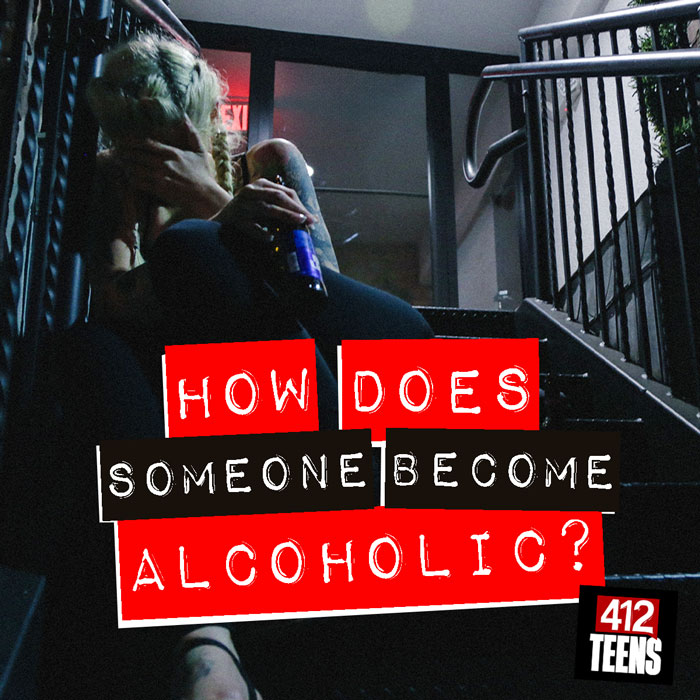How do people become alcoholics?

"Don't be drunk with wine, because that will ruin your life. Instead, be filled with the Holy Spirit." —Ephesians 5:18 (NLT)
It should be common knowledge that consuming excess alcohol destroys relationships, jobs, and lives. It causes chronic health problems and increases the risk of injury—both to oneself and to others. A 2025 report from the U.S. Surgeon General's Advisory says that alcohol consumption increases the risk of seven different types of cancer. Alcohol causes damage to DNA, proteins, and cells; alters hormone levels; and allows the body to more easily absorb carcinogens1.
So if all that is true and the dangers of alcohol abuse are so widely known, how and why do people get to the point where they have become alcoholics?
Risk Factors for Alcoholism
Studies have shown that at least three factors contribute to alcoholism: genetic predisposition, social pressure, and poor mental health.
Ironically, many people become addicted to alcohol in part because they have a genetic predisposition to alcohol tolerance. The more they drink, the more they need to feel the same effects in the future. The biology isn't well understood yet, but it's thought genes can account for half of a person's risk of developing alcoholism. So if you have biological family members who have struggled with alcohol abuse or alcoholism, that is a sign that you may be susceptible to it too.
Our environment and community can also contribute. We tend to follow the behavior of the people we're with. If our family, friends, teammates, and coworkers indulge in drinking, we're much more likely to join in. This is one reason why we need to be careful who we choose as our closest friends.
Loneliness, depression, toxic relationships, and traumatic events can also lead to excessive drinking. When drinking alcohol becomes a coping mechanism for dealing with negative realities, this is known as "self-medicating."
People with job frustrations, family difficulties, past trauma, money problems, suicidal ideation, or feelings of meaninglessness and despair often seek escape through alcohol. Of course, whatever relief is gained by drinking is short-lived. When the person is sober again, they realize their problems are still there—and just as daunting as ever.
Seeking & Providing Support
If you realize that you are suffering with alcoholism, please know that there is hope. Being an alcoholic does not cause God to reject a believer or revoke their salvation—nothing can do that (Ephesians 2:8-9). Alcoholism can be devastating both for you and those around you, so please seek help. Ask God for the courage and strength to take that first step in connecting with loved ones, your pastor, or even pursue therapy through counseling or a support group like Alcoholic Anonymous (1 Corinthians 10:13).
If you have a loved one who struggles with alcoholism and you want to provide meaningful support and encouragement, it's important to first understand the basics of this disability.
Alcoholism is a chronic condition that affects both the mind and the body. In the purest sense, there is no "cure" for alcoholism—only abstinence. Alcoholics are not necessarily careless, lazy, or weak-willed. Functioning alcoholics may hold down jobs, raise families, and appear perfectly normal. Even as they do so, the alcohol is driving a desire for more and damaging their brains, bodies, and mental health.

Whether we're seeking support for ourselves or providing it for a loved one, we must understand the harsh realities of alcoholism. Addiction of any kind is serious, dangerous, and of great concern and priority to address. Do your research and find options in your local area. Knowing the facts should hopefully bring a measure of understanding and grace for everyone involved.
We don't have to do it alone. God loves both the alcoholic and those who have been hurt by another's alcoholism. Jesus can provide healing and restoration. We just need to ask (Isaiah 40:31; Micah 7:7; Jeremiah 29:11; Romans 15:13).
If you realize that you show symptoms of alcohol abuse or alcoholism, we recommend Celebrate Recovery.
REFERENCES: 1. U.S. Department of Health & Human Services, Office of the Surgeon General. (2025, January 17). Alcohol and cancer risk: The U.S. Surgeon General's advisory [PDF]. Assistant Secretary for Health. https://www.hhs.gov/sites/default/files/oash-alcohol-cancer-risk.pdf [Accessed: June 19, 2025].
ALSO SEE:
- Is alcohol abuse a sin?
- What is a functioning alcoholic?
- Are coping mechanisms sinful?
- How can I overcome feelings of being overwhelmed?
- What does the Bible say about depression?
- How should a Christian deal with SAD (Seasonal Affective Disorder)?
- What does the Bible say about loneliness?
- What does the Bible say about recovering from PTSD?
- What does the Bible say about mental illness?
- What does the Bible say about mental health?
- Celebrate Recovery


TL;DR
Anyone can become addicted to alcohol for any variety of different reasons. Genetics, environment, trauma, and/or mental and emotional difficulties can all play a part in a person's susceptibility to alcoholism. Knowing this can provide focus for recovery methods and encourage others to show grace to those who struggle with addiction. Being an alcoholic does not cause God to reject a believer or revoke their salvation—nothing can do that (Ephesians 2:8-9). But alcoholism can be devastating both for the sufferer and those around them, so please seek help if you find that you have become addicted to alcohol. Ask God for the courage and strength to take that first step in connecting with loved ones, your pastor, or even pursue therapy through counseling or a support group like Alcoholic Anonymous (1 Corinthians 10:13).
